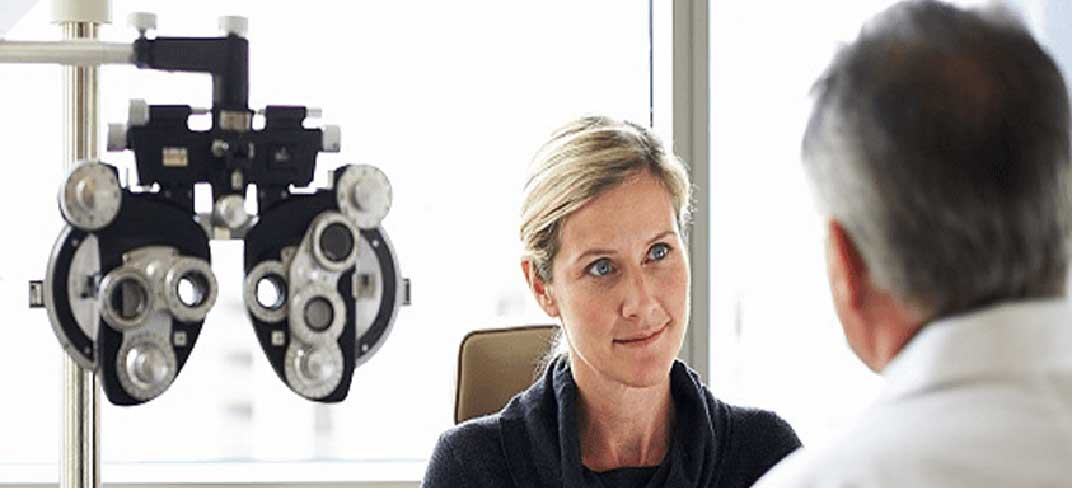What is Glaucoma?

Glaucoma is the name for a group of eye diseases that damage the optic nerve. This nerve carries information from the eye to the brain. When the nerve is damaged, you can lose your vision. At first, people with glaucoma lose side (peripheral) vision. But if the disease isn’t treated, vision loss may get worse. This can lead to total blindness over time.
Glaucoma is the most common cause of blindness in Ireland according to the Irish College of Ophthalmologists (IOC), and the incidence of glaucoma is expected to rise by 33% over the coming decade.
There are three types of glaucoma:
- Open-angle glaucoma (OAG) is the most common form and usually affects both eyes at the same time. Your vision gradually gets worse. But it gets worse so slowly that you may not notice it.
- Closed-angle glaucoma (CAG) is less common in western countries. It usually affects one eye at a time. CAG can happen suddenly and be a medical emergency.
- Congenital glaucoma is a rare form of glaucoma that some infants have at birth. Some children and young adults can also get a type of glaucoma.
What Are the Symptoms of Glaucoma?
If you have OAG, the only symptom you are likely to notice is the loss of vision. You may not notice this until it is serious, as the eye that is less affected makes up for the loss at first. Side vision is often lost before central vision.
Symptoms of CAG can be mild, with symptoms like blurred vision that last only for a short time. Severe signs of CAG include longer-lasting episodes of blurred vision or pain in or around the eye. You may also see coloured halos around lights, have red eyes, or feel nauseous.
In congenital glaucoma, signs can include watery eyes and sensitivity to light. Your baby may rub his or her eyes, squint, or keep the eyes closed much of the time.
How is Glaucoma Treated?
While there is no cure for glaucoma, it can easily be treated in the vast majority of cases. Most treatments are aimed at reducing eye pressure and preventing further damage to the optic nerve. To help keep your vision from getting worse, you could be prescribed the following treatments:
- Eye drops
- Laser treatment
- Surgery
Our partners in eye care, the Institute of Eye Surgery, evaluate the best option for each patient on a case-by-case basis. However, the most important step in the successful management of glaucoma rests on the patient’s compliance with the prescribed therapy and their upkeep of regular appointments.
How Do You Cope With Glaucoma?
If you have vision loss, you can keep your quality of life. You can use visual aids, such as large-print items and special video systems, to help you cope with reduced eyesight. Support groups and counselling can also help you deal with vision loss.
If you are experiencing eye problems, make an appointment to see a trusted consultant ophthalmologist at UPMC Whitfield Hospital or UPMC Kildare Hospital.